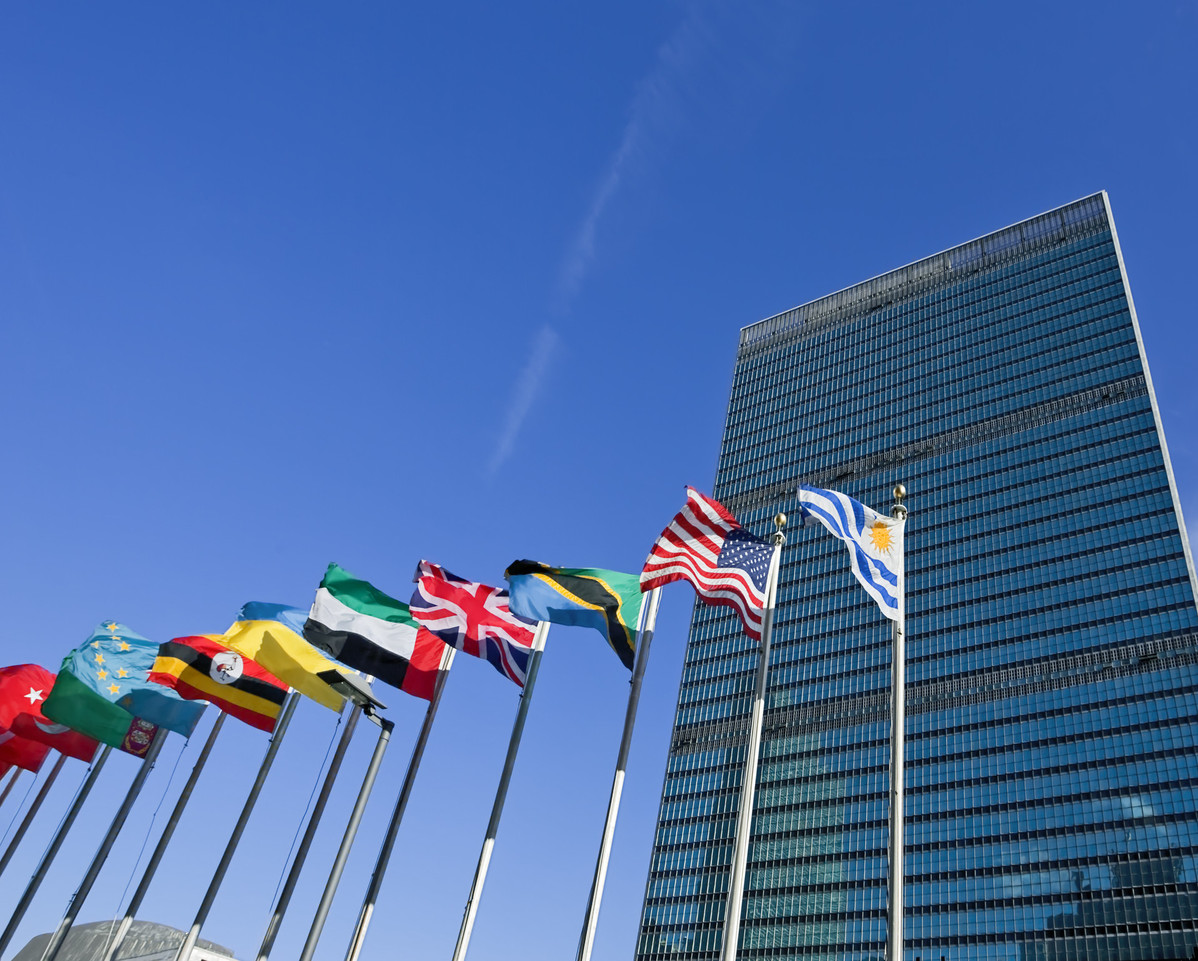Nations urged to stand together on terrorism after pandemic
By HONG XIAO at the United Nations | chinadaily.com.cn | Updated: 2020-07-12 01:45

China's envoy to the United Nations has said it will be of the utmost importance to further promote multilateralism in counterterrorism efforts during and after the COVID-19 pandemic.
"Facts have proved that no country can stand alone in the face of pandemic situations, which also shows the growing threat from non-traditional security issues. We must redouble our efforts and enhance our responses," said Zhang Jun, China's permanent representative to the UN.
Zhang was speaking at a meeting on Member States' Counter-Terrorism Priorities in the Post COVID-19 Environment on Friday held as part of the UN's virtual Counter-Terrorism Week.
Zhang said terrorism knows no borders, and terrorism in all its forms and manifestations constitutes a threat to international peace and security. Double-standards must be avoided in fighting against terrorism, he added.
"We must strengthen our firm support for international mechanisms, and continue to support the UN to play a leading role in counterterrorism," he said.
Zhang added that adhering to multilateralism, and strengthening international cooperation, is the only option for correctly responding to the challenges and pointed out that, in facing the new and evolving challenges posed by terrorism, we must be equipped with new tools and technology and take prompt action.
"While the link between COVID-19 and terrorist activities needs further studies and analysis, we should keep high alert on the impact of the pandemic," he said. "We should further strengthen the legal framework and actions, internationally, regionally, and domestically, on all fronts of counterterrorism. Utilization of information technology, intelligence-sharing, and judicial cooperation should be further enhanced. Relevant international instruments, including relevant Security Council resolutions, should be strictly implemented."
The ambassador emphasized that we need to enhance unity and solidarity in fighting terrorism, and strengthen capacity-building.
"Facing these challenges, no one is safe until everyone is safe. We need to build partnerships among all of us," he added.
Zhang said the United Nations Counter-Terrorism Office, known as UNOCT, has implemented a large number of capacity-building projects with outstanding results.
"We hope that UNOCT will continue to strengthen its capacity-building projects in response to cyber terrorism, bio-terrorism, and law enforcement cooperation," he said.
Zhang said counterterrorism in Africa should also be a priority and he noted that cooperation with regional organizations is extremely important.
"Promoting development and regional cooperation are highly encouraged, in response to the needs of member states to eradicate the root causes of terrorism," he said.
Zhang reiterated that China will continue to strengthen its political and financial support of UNOCT and of international counterterrorism cooperation.
"Through the China-UN Peace and Development Fund, we have sponsored a couple of UNOCT's projects in Africa, and in major sporting events," Zhang said. "In the future, we will continue to vigorously support the work of the relevant UN counterterrorism agencies, and to participate in the process of the review of the UN Global Counter-Terrorism Strategy. We are committed to jointly advancing our common struggle against terrorism and the pandemic, to safeguard our common future for all."
As for incorrect comments made by the representative of the United States concerning the Xinjiang Uyghur Autonomous Region, Zhang said China totally rejects such accusations and explained that there is no difference between so-called good or bad terrorists. He said the region suffers greatly from terrorism and violent extremism.
To address the threats, Zhang said Xinjiang has taken a series of preventive counterterrorism and de-radicalization measures that are in line with the UN Global Counter-Terrorism Strategy and the Plan of Action to Prevent Violent Extremism.
"These measures have yielded good results. China is firmly opposed to the practice of politicization and double-standards in counterterrorism and urges the US to stop such actions and stop interfering in China's internal affairs," Zhang said.
The meeting was one of a series of events in the UN's virtual Counter-Terrorism Week, which ran from July 6 to July 10. The week was hosted by the UNOCT and held on web platforms through video connections and broadcast globally.
The UN's secretary general, Antonio Guterres, and more than 1,000 representatives from the major UN Global Counter-Terrorism Coordination Compact Entities, member states, academia, civil societies, and media took part.
The virtual week focused on issues including the roles of the UN and of multilateral cooperation, synergies and complementarities between COVID-19 and counterterrorism agendas, the threat of bio and cyber terrorism, the rise of violent extremism and hate speech, victims of terrorism, foreign terrorist fighters, counterterrorism and human rights, and the role of youth, civil society, and the media. At least 10 panel discussions were held.
The outcome of the meetings will be integrated into the review process of the UN Global Counter-Terrorism Strategy in 2021.
























